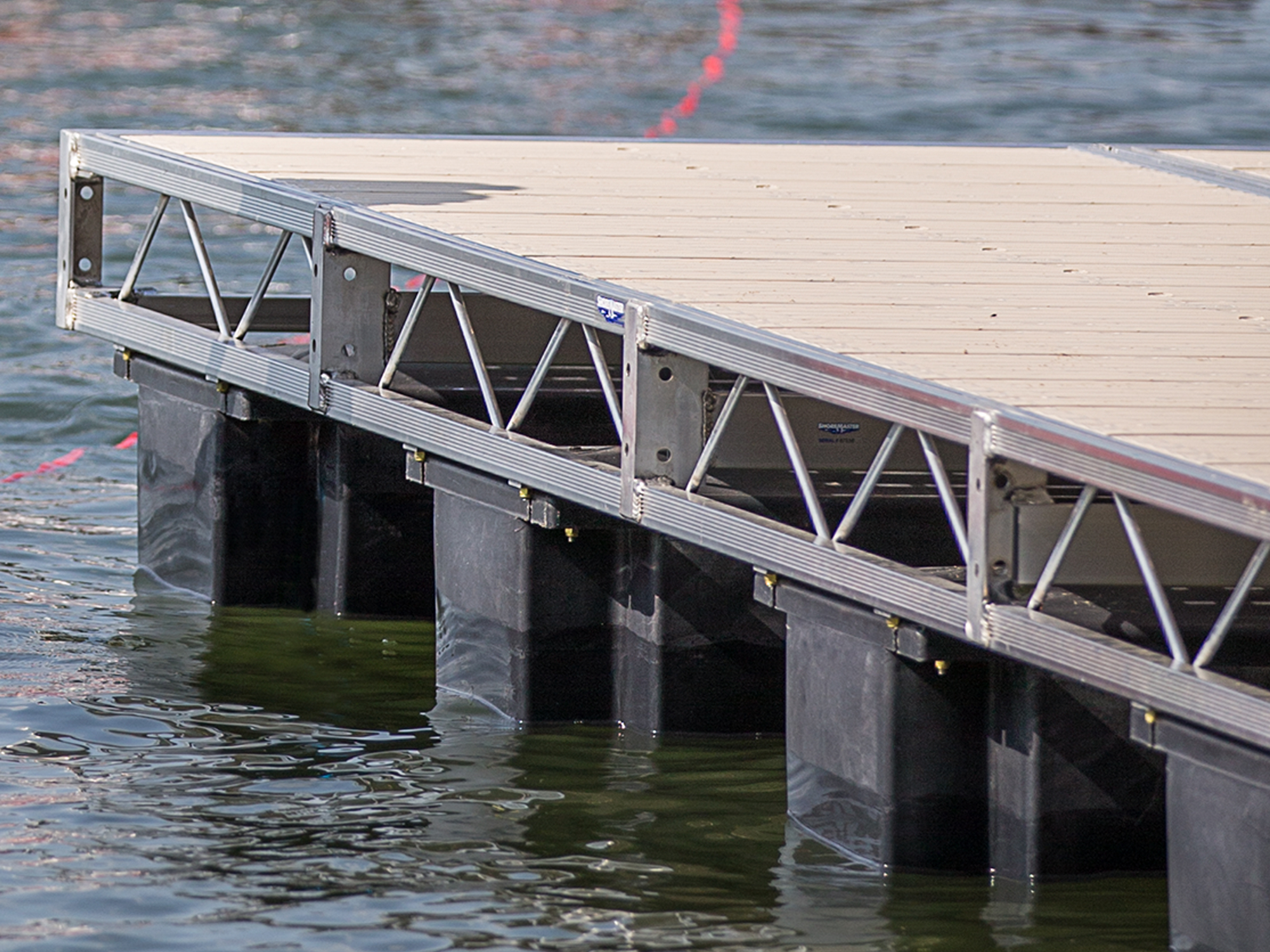Benefits of Working with an Established Floating Dock Company for Assurance
Benefits of Working with an Established Floating Dock Company for Assurance
Blog Article
Floating Docks: The Suitable Choice for Versatile Water Gain Access To
Floating docks existing a compelling option for a range of water access requires, supplying flexibility that goes beyond typical mooring choices. Their capability to adapt to fluctuating water levels while making sure stability and safety and security makes them especially useful for both industrial and recreational applications. The modular nature of floating docks promotes customization, providing to particular requirements. However, the subtleties of installment and maintenance, together with the variety of applications, necessitate a closer assessment to fully appreciate their potential advantages and implications for waterway access approaches.
Advantages of Floating Docks
Floating docks offer various benefits that improve water gain access to for different applications. Their capability to increase and fall with transforming water levels makes them particularly advantageous in atmospheres with rising and fall tides or seasonal variants. This flexibility guarantees that vessels can quickly tie without concern for the water's deepness, supplying a trusted platform for leisure, industrial, and industrial usages.
In addition, floating docks are typically built from resilient materials that resist deterioration, making them ideal for long-term use in marine environments. Their installment is commonly much less intrusive than standard set docks, decreasing the ecological impact and promoting quicker release (floating dock services). This adaptability enables much easier moving or reconfiguration according to customer needs or environmental changes
Safety and security is another essential advantage; floating docks can provide stable access for people disembarking or boarding from boats and minimize the risk of crashes linked with unsteady surfaces. They can be made to accommodate a variety of accessories, such as cleats and fenders, enhancing capability. In general, floating docks stand for an effective remedy for enhancing water accessibility across diverse industries while promoting safety and security and environmental sustainability.

Types of Floating Docks
Various sorts of floating docks deal with various requirements and environments, each created with particular functions to enhance functionality. The most usual types include modular docks, which are composed of interlacing areas that permit easy modification and growth. These docks are optimal for entertainment usage, as they can be customized to fit different boat sizes and water conditions.
One more prominent alternative is the stationary floating dock, which remains secured in position yet floats with transforming water degrees. floating docks. This type is particularly suited for locations with very little tidal variations, offering steady accessibility for angling or swimming. Additionally, there are drive-on docks, which include a sloped style that allows watercrafts to quickly drive on and off, making them suitable for individual boat and smaller vessels
For commercial applications, sturdy floating docks are offered, created from enhanced materials to withstand substantial lots and severe marine atmospheres. Green floating docks make use of lasting products and layouts to reduce environmental impact, commonly integrating functions like plants to sustain regional wildlife. Comprehending the numerous sorts of floating docks ensures that individuals can select the from this source most appropriate option for their details demands.
Setup Refine Summary
A successful installment of floating docks calls for mindful planning and interest to detail to make certain ideal efficiency and security. The first step involves assessing the site conditions, consisting of water depth, existing, and prospective obstacles. This assessment educates the selection of the appropriate dock materials and layout tailored to the certain environment.
Next, obtaining needed licenses is vital, as lots of territories have policies relating to construction on water bodies. The setup can continue as soon as approvals are protected. Begin by preparing the structure, which may entail anchoring systems or pilings tailored to the dock kind and regional conditions.
Following the structure configuration, assemble the dock areas according to supplier specifications. Ensure that all elements are securely fastened and straightened to endure environmental stresses. Placement the dock in the designated location, ensuring it is level and secure.

Upkeep Tips and Ideal Practices
After the installment procedure is complete, continuous maintenance plays a crucial function in making certain the long life and capability of floating docks. Routine assessments ought to be conducted to recognize any kind of indicators of damages, degeneration, or wear - floating docks. Look for any kind of loosened fittings, splits, or splitting up in the dock sections, as these can endanger structural integrity
Cleansing the dock is crucial to get rid of debris, algae, and other build-up that can influence its look and security. Make use of a mild stress laundry periodically to keep cleanliness without creating damage to the surface. In addition, applying a protective sealer every few years can aid enhance longevity and stand up to ecological wear.
Focus on the mooring lines and supports, ensuring they are cost-free and protected from corrosion. Replace any degraded parts immediately to avoid hazards. Seasonal changes might likewise be required; throughout severe weather problems, rearranging or reinforcing the dock can stop damages.
Applications for Floating Docks
Floating docks offer a multitude of applications, providing to both leisure and commercial requirements. In entertainment settings, they give smooth accessibility to waterways for tasks such as boating, angling, and swimming. Their flexible nature permits for installment in differing water degrees, making sure safe and stable gain access to no matter of tidal variations.
Readily, floating docks are important for marinas and waterside services. They help with the docking of vessels, making it possible for effective dumping and packing of items. Their modular layout allows for simple expansion or reconfiguration to fit changing organization needs, making them perfect for watercraft rentals, tour operations, or fishing charters.
Additionally, floating docks are made use of in environmental applications such as marine research and environment restoration. They can function as platforms for clinical researches, keeping track of water top quality, or conducting wild animals surveys without use this link disturbing delicate environments.
In commercial contexts, floating docks are used in construction tasks, offering access to hard-to-reach areas for equipment and personnel. Their adaptability, longevity, and very little influence on the atmosphere make them an ideal option for a wide variety of applications, improving both performance and availability in different water-based environments.
Final Thought
In verdict, floating docks stand for an ideal option for diverse water accessibility needs, owing to their flexibility, resilience, and modular layout. These frameworks help with risk-free mooring for different applications while reducing ecological influence throughout setup. The reduced upkeep demands even more improve their functionality. As such, floating docks function as an important property for entertainment, industrial, and ecological jobs, ensuring dependable accessibility to waterways and promoting sustainable practices in marine atmospheres.
Floating docks existing a compelling service for a variety of water accessibility requires, supplying convenience that goes beyond standard mooring options.Floating docks offer numerous benefits that improve water access for various applications. On the whole, floating docks stand for an find this efficient option for enhancing water accessibility throughout varied fields while promoting safety and security and environmental sustainability.
Another popular option is the stationary floating dock, which stays secured in place but drifts with changing water levels.In final thought, floating docks stand for an ideal remedy for diverse water access requires, owing to their adaptability, sturdiness, and modular style.
Report this page